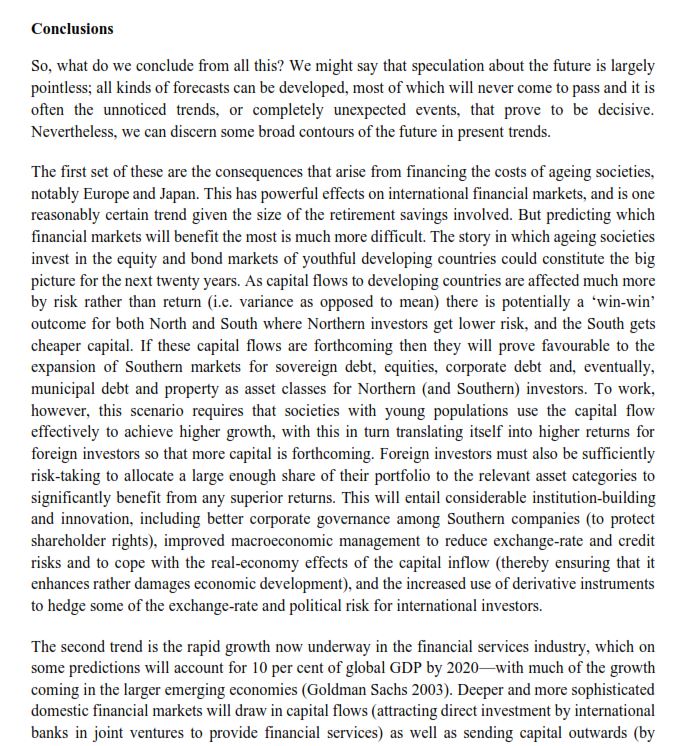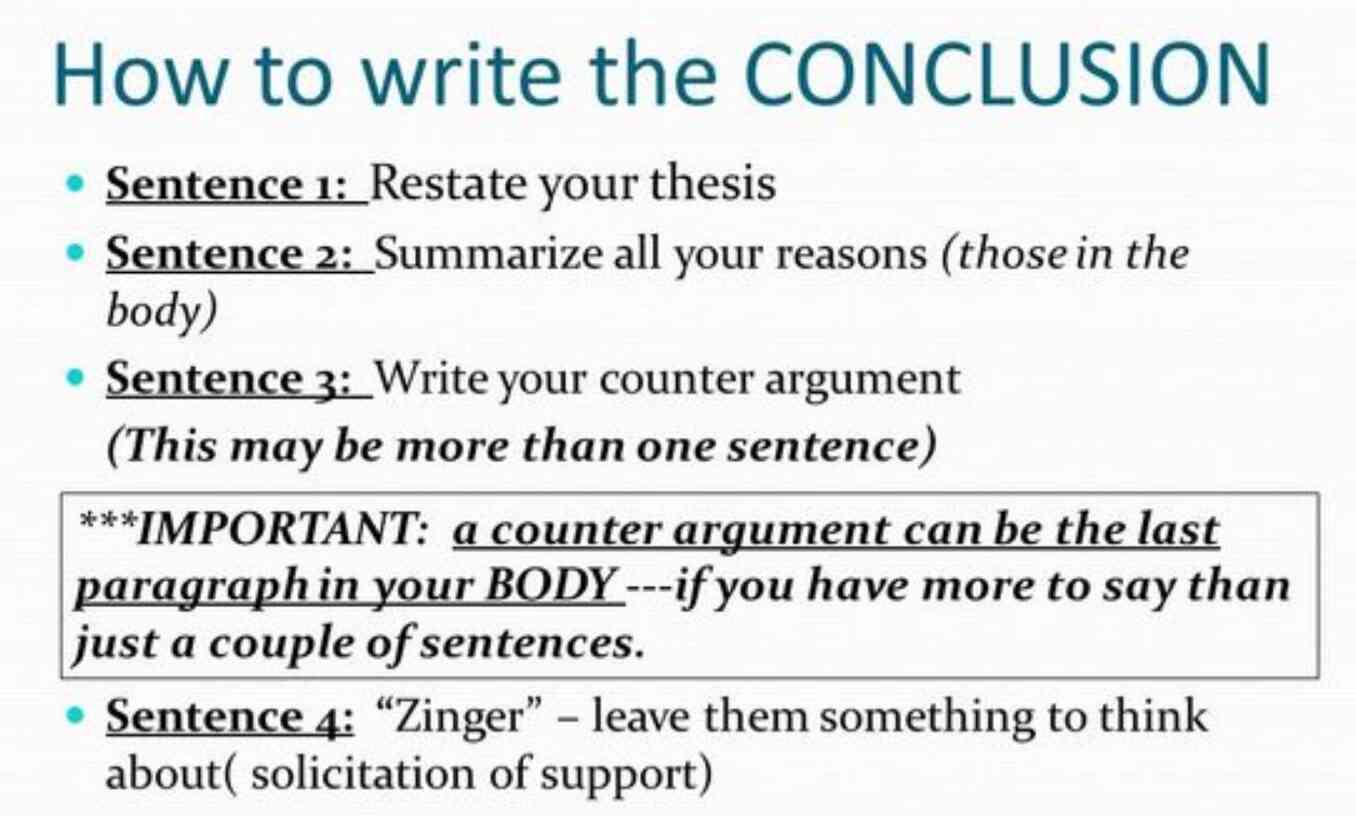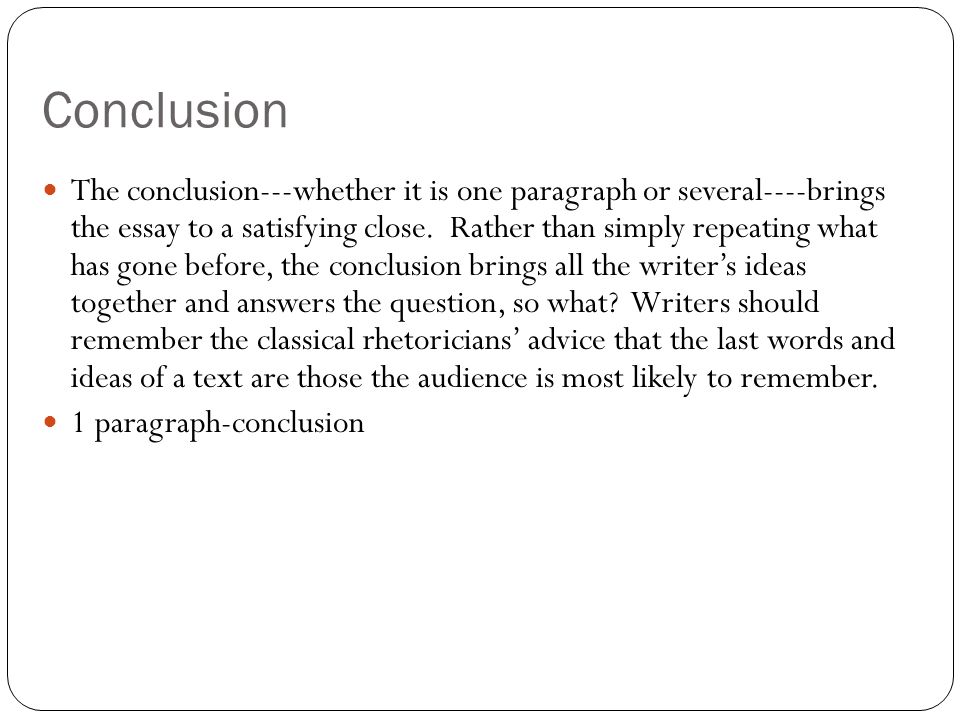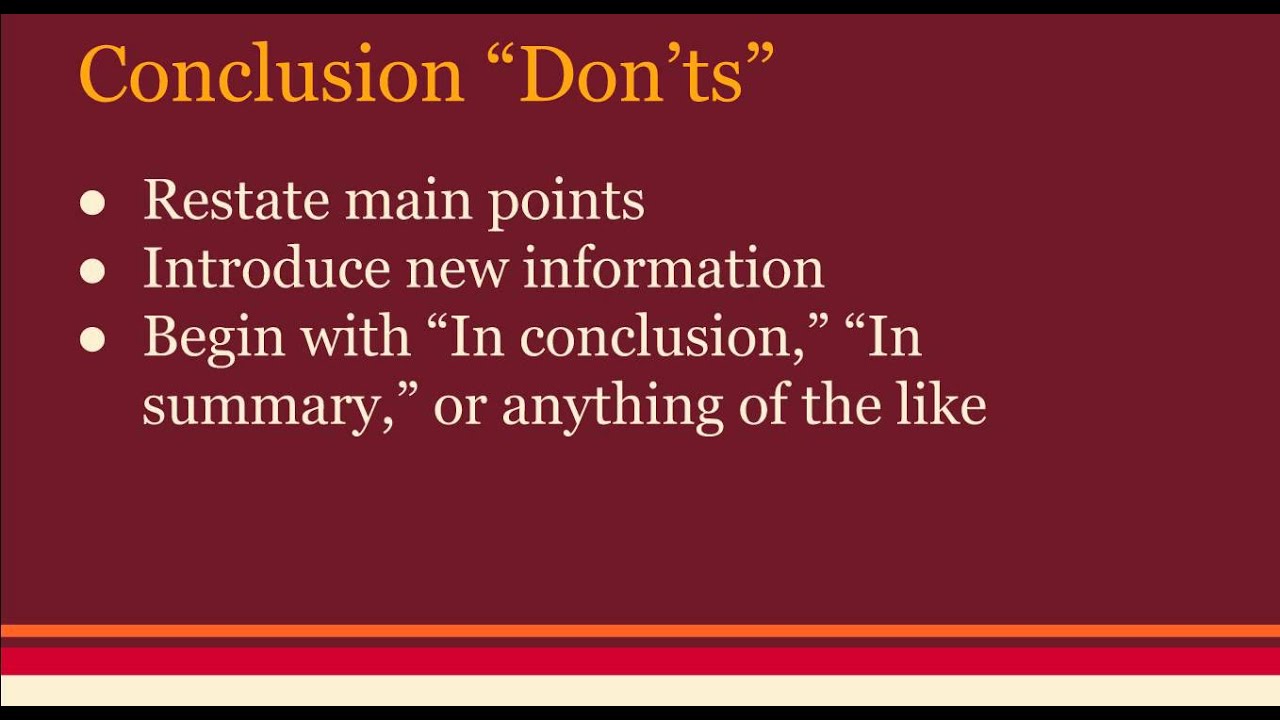When writing a conclusion for a research paper, the author must resist the temptation to apologize for the way he or she wrote the paper or to question the authority of his or her findings. The tone of the conclusion should convey confidence to the reader, and not the opposite. For example, if the research paper is an analysis of a problem, the author should state that further research should be conducted to better understand the problem.
Restate your thesis
Your conclusion should restate your thesis and make the main points of your essay clear. However, most professors expect you to go beyond just restating your argument. You need to tie everything together and demonstrate the unity of your paper. To do this, make sure that you do not use the same language as the rest of your paper. Also, be sure that you have cited your sources appropriately.
After your introduction, begin the conclusion paragraph with the thesis statement. The thesis statement should complement the generalization of your essay, but should not be identical to it. You can help yourself by re-reading the topic sentences from your paper and finding the best wording for the conclusion. This way, you can avoid making the final sentence of your paper sound vague. Make sure that your conclusion is clear, concise, and logically organized.
Summarize your main points
In a research paper, the conclusion section should summarize the main points of your work. Your conclusion should include your main findings, as well as anything that you found that is important for a larger perspective. This could be anything from a problem with your experiment design to a different conclusion at the end of the study. It’s also important to resist the temptation to apologize or be defensive of your writing. Rather, it should convey a sense of confidence to your reader.
The purpose of the conclusion is to pull the reader’s attention and reinforce the central idea of your work. It’s also a chance to summarize your main points and draw your paper’s overall impact. Using a quote in the conclusion is a good option, provided you’re not adding new information. The best quote is one that drives home the main idea of the paper. Harvard Writing Center offers a sample conclusion using a quote.
Comment on the need for further research
In a research paper, a researcher should highlight opportunities for further research. Such a comment makes it clear that the researcher understands the importance of the problem at hand and is aware of the need to expand his or her knowledge and expertise. If your paper was inductive, the reader might not have understood the significance of your findings, and it is therefore helpful to provide a summary of your paper’s key points to explain what you have discovered.
The discussion section of a research paper should present a new insight or understanding of the problem. You can also address any open questions or issues that you didn’t explore in your study. It is important to link your suggestions to limitations or other critical issues revealed in the data. It is also useful to provide further examples of research in the area. The conclusion should be brief but detailed. It should be followed by the discussion section.
Pose questions
To make your essay interesting, pose questions for a good conclusion. This will not only engage your readers, but will also give them a sense of who you are. Posing a question in the end of your essay will also give you extra credit. A good conclusion summarizes your ideas and helps the reader come to a new understanding. A good conclusion is also an opportunity to summarize the main points of your research paper.
One of the best ways to conclude a research paper is to pose a question. Most research papers have information to support an argument. This information is then used to answer the question posed in the paper. The conclusion should then include a call to action. This action could be a call to action or a recommendation. Posing questions is an effective way to end a paper and encourage your readers to consider new ideas.
Redirect readers to take the information they get from your paper and apply it in real life
Challenge your readers to apply the information they learn in your paper to their own lives. One great example of a challenging reader is jury duty. While many people view jury duty as a tedious chore, it is an important aspect of the American experiment in freedom. It forces readers to think globally about what they’re reading and apply it to their own lives. You can use the example of serving on a jury to make your challenge more concrete and impactful.




